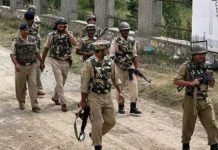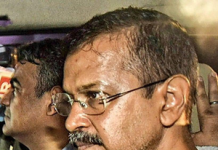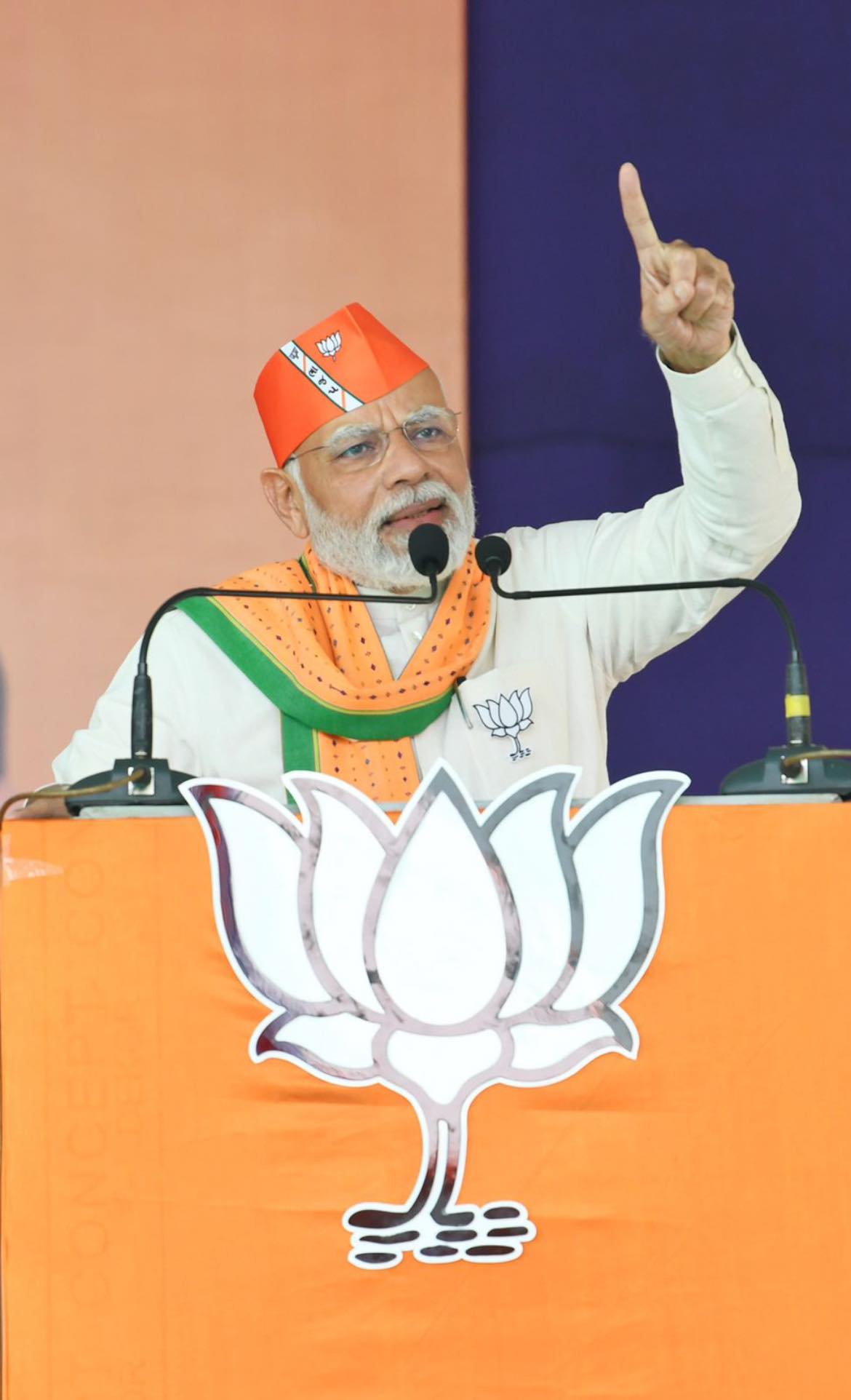
Modi wave has ebbed in the state and the ruling party is being questioned over its performance even as AAP’s soft Hindutva pitch is threatening to wean the voters off BJP. The Congress is confident that its extensive door-to-door canvassing will pay off, writes Aayush Goel
Gujarat is again going to the polls, in the first week of December. The December 8 result will not just decide the state’s political future but also the country’s by extension. It will establish who PM Narendra Modi’s challenger will be in 2024.
It’s not just a high-stakes battle but also a triangular one after almost 30 years. It’s crucial for BJP as not only it’s PM Modi’s home state but also of his closest associate, Union Home minister Amit Shah. The state forms the basis of the party’s political ideology with Gujarat Model being the most professed promise of the party. The party needs to win it to make its grip on the state firmer. It’s do or die for Congress which is facing an existential crisis, triggered by election losses, exits of some top leaders, and dissent within the party. The election is the sole chance of national expansion of AAP which is riding high on Punjab win as the party strives to secure a win or at least create a dent in Modi’s home turf.
Opinion polls predict clean sweep by BJP
While actual results will only be known in December, the opinion polls have started projecting the success of BJP in the state. The state is the BJP’s crown jewel and has steadfastly backed the party since 1995. It is also the home state of PM Narender Modi and Home Minister Amit Shah. In the last 27 years, since 1995, the BJP has been in power in the state. It has won year after year and reached its peak post 2001 after Narender Modi went to take over the national charge in Delhi. There were Godhara riots in 2002 but even that could not dent the party’s success in the state.
In 2014, Narendra Modi became prime minister and his personal charisma, woven around Hindutva, which first came to the fore in 2002, won the BJP state after state. Gujarat had become the BJP’s election cradle. Against such a backdrop, the party and political analysts are confident of an encore of win with no strong opposition in sight.
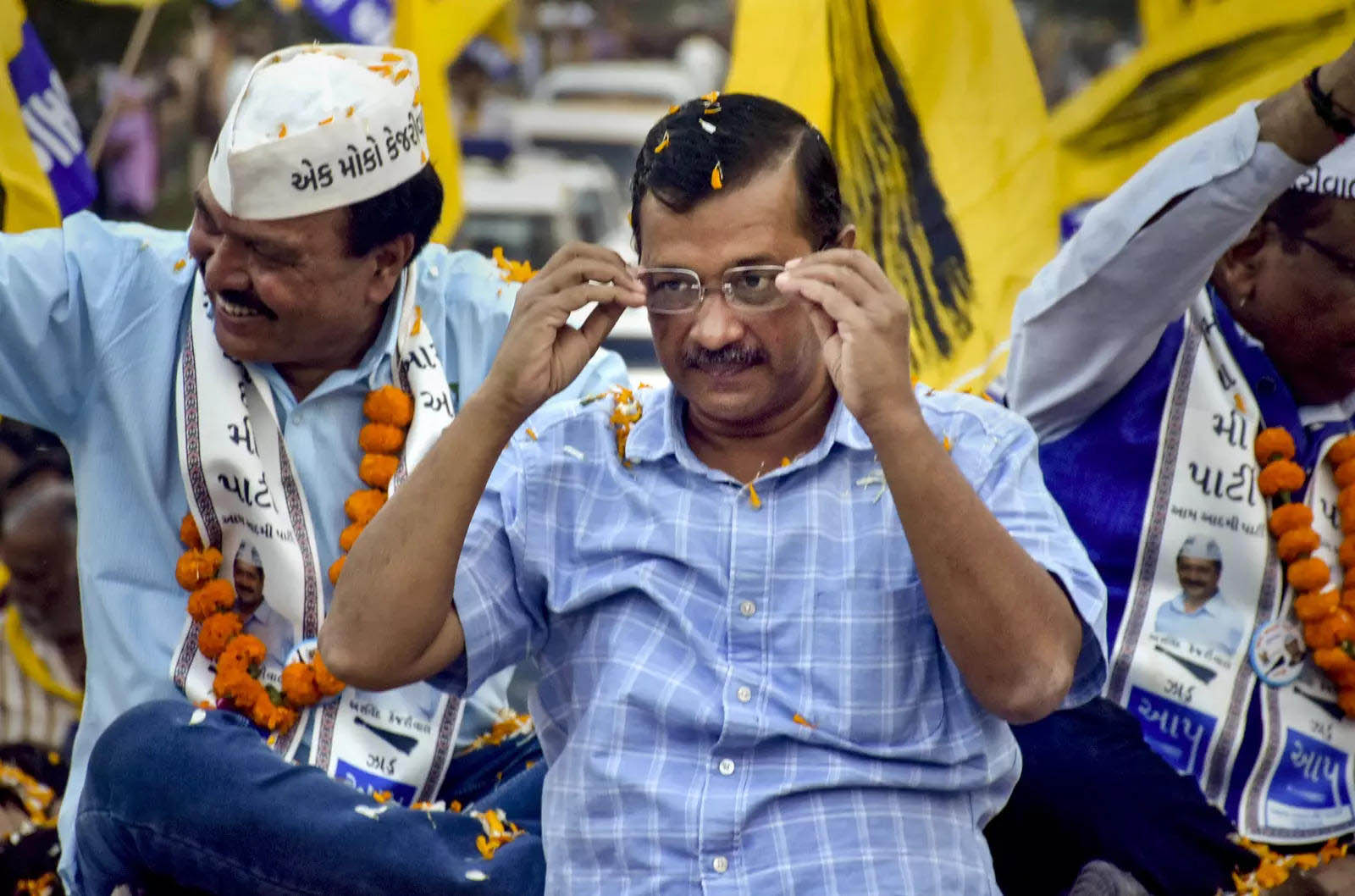
Things however may not be that easy. In 2017, Gujarat voted the BJP to power but what was significant was a reduced majority of just 99 seats, the lowest for a single-majority party since 1975. The party faces anti-incumbency. The Morbi disaster is fresh in voter’s minds. Narendra Modi hasn’t been Gujarat’s CM since 2014 and the Modi wave has apparently ebbed even in state with people looking beyond him and towards the actual candidates. The party is being analysed and questioned not just over Hindutva but also for infrastructural achievements or failures. AAP’s soft Hindutva and good governance pitch is threatening to wean off the voters.
Congress low but not out of fray
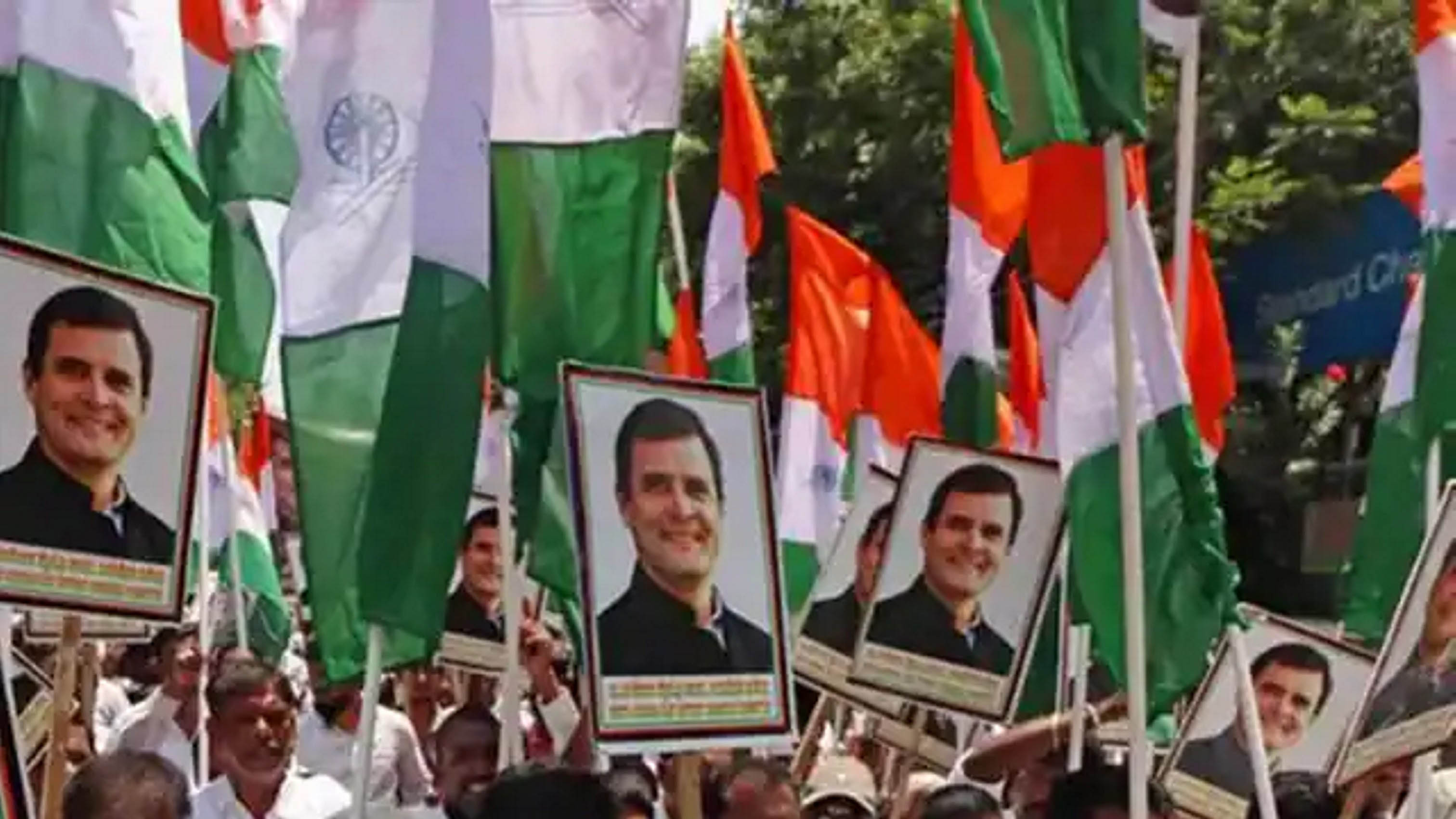
In 2017 polls, Congress lost but its tally was the best since 1985 with 77 seats. The BJP won but its total dropped into double digits for the first time in over two decades. From 1995, the BJP-Congress gap kept widening but it has narrowed in the last two polls, 2012 and 2017. The rural belt of state has over years proved a stronghold of the party where the party won more seats than the BJP in the 2017 polls. Here, the Congress’s tally went up from 57 to 71. The BJP’s drop was from 77 to 63.The stronghold is however challenged by the fact that BJP swept Gujarat’s rural polls and won most municipal elections last year. Congress leader Rahul Gandhi has been criticised for not including Gujarat in his ongoing Bharat Jodo yatra from Kanyakumari to Kashmir, in what many called a walkover. Like in the entire country, the Congress appears listless and the party organisation is a shambles. Hardik Patel’s exit is being seen as a challenge.
AAP the contender or vote cutter?
The AAP is the third party in the fray this election. It is commonly dismissed as Congress vote cutter. It’s a city centric party that is expected to cut into BJP votes that enjoys urban strongholds in the state. Being a new entrant, it comes with no baggage in the state. The party talks about hitherto never touched political topics like schools-hospitals. It is riding high on confidence after the Punjab performance. The party can position itself as a pro-change agent for those who are tired of the BJP-Congress duopoly in the state. Things however are difficult as the party’s organisation is negligible. It doesn’t have a prominent local face to project and is too dependent on Arvind Kejriwal to pull in the votes. The AAP perhaps may not be able to win as political history of the state shows no party can win here without a significantly good performance in the hinterland but a good show in urban pockets will give a boost to Arvind Kejriwal’s projection as Modi’s competitor after having taken Delhi and Punjab.
Key poll issues
Political observers feel the 27-year rule of the BJP in Gujarat and growing anti-incumbency will play a major factor in the upcoming elections of the state. There is a growing dissatisfaction over issues like inflation, unemployment etc which have remained unresolved over the years.
Basic education and health facilities in remote areas of the state continues to be a key poll issue in Gujarat. The state struggles with acute staff shortage be it in schools or primary health centers in rural areas. The state was once an example to follow for good roads, things however have gone downhill in the last five to six years, the state government and municipal corporations have not been able to construct good roads or maintain old roads. Complaints of pothole ridden roads are common from all over the state.
Gujarat has one of the highest electricity tariffs in the country. The Southern Gujarat Chambers of Commerce and Industry recently demanded reduction in commercial electricity tariff, saying they have to pay Rs 7.50 per unit while their industry counterparts in Maharashtra and Telangana have to pay Rs 4 per unit. This is where the Aam Aadmi Party’s offer of 300 units free per month might play a significant role in the elections.
Bilkis Bano case
The Gujarat government’s decision to release the 11 convicts early in the Bilkis Bano gangrape and murder case because their ‘behavior was found to be good’ has been heavily criticized. Bilkis was the only survivor during the 2002 Gujarat communal riots that saw the murder of 14 of her family members, including her three-year old daughter. The impact of the remission of sentences of those convicted will play out differently for the majority and minority communities.
Muslims, make up about 9% of Gujarat’s population and are looking at other options other than the torpid Congress this time. While Asaduddin Owaisi’s AIMIM has been wooing them energetically, AAP chief Arvind Kejriwal has maintained a studied silence on communal issues like ‘love jihad’ and the release of convicts in the Bilkis Bano case.
Caste politics, which took a back seat after the 2002 Hindutva tidal wave, animated the electoral arena again in 2017, but five years on it has lost salience. Hardik Patel and Alpesh Thakor, leaders of two protesting communities, Patels and Kshatriyas, respectively, have joined BJP. However, caste issues remain relevant in rural Gujarat.
Morbi bridge collapse
The October 30 bridge collapse in Gujarat’s Morbi claimed 135 lives highlighting rampant corruption and the nexus between administration and rich businessmen. The deaths are haunting entire states who are questioning whether the incumbent government has taken them for granted and attaches no value to their lives and losses. Though the Patidar-dominated Morbi Assembly seat in Gujarat is considered a stronghold of the Bharatiya Janata Party (BJP), the poll equations this time may change primarily due to the recent bridge tragedy which claimed 135 lives. The tragedy which shook the entire nation has left the area shocked and fuming over the poor state of infrastructure. Amid such a scenario, the promise of Arvind Kejriwal-led Aam Aadmi Party (AAP) about improved Delhi like urban infrastructure is luring. Morbi has nearly 2.90 lakh voters, including 80,000 Patidars, 35,000 Muslims, 30,000 Dalits, 30,000 Sathwara community members (from the Other Backward Class category), 12,000 Ahirs (OBC), and 20,000 Thakor-Koli community members (OBC).
Farmers’ issues
Farmers are agitating in several parts of the state as they have not been given compensation for crop loss due to excessive rain in the last two years. Meanwhile, there is a growing dissatisfaction among farmers and landowners whose lands are being acquired for various government projects. Farmers, for instance, opposed land acquisition for high-speed bullet train project between Ahmedabad and Mumbai. They also opposed land acquisition for the expressway project between Vadodara and Mumbai.
Pied pipers
Prime Minister Narendra Modi, a political stalwart and himself an issue in state polls launched the new election slogan in Gujarati – ‘I have made this Gujarat’. “We’ve been working continuously for the development of Gujarat. Every Gujarati is full of self-confidence, which is why when Gujaratis speak, a sound emanates from within them – they have created this Gujarat, I have come here to beat my past records (of BJP’s victory margin). I have told the Gujarat BJP that I am ready to give as much time as possible to it (for campaigning),” Modi said.
“I just have one request to make. You have given them (the BJP) 27 years, give me five years. I am only asking for five years….if I do not work, next time I will not come to ask for a vote,” Kejriwal said.
Gujarat’s absence from Rahul Gandhi’s Bharat Jodo Yatra and missing senior leaders from the election rallies in the state has raised a question mark over the Congress’s tactics in elections. They insist that they are not going for shrill campaigning this time, but talking door to door. “We have a strategy in place and have focused on localised door-to-door canvassing to mobilise support. ‘11 pledges’ (vachan patra) launched by Rahul Gandhi in Ahmedabad is our slogan of free electricity for farmers, farm loan waiver, compensation to Covid-hit families, 10 lakh new jobs and 3,000 new English medium schools, gas cylinder for Rs 500, subsidy to dairy farmers and free education to girls” Raghu Sharma said.
Election figures
The Election Commission announced that elections to the 182-member Gujarat assembly will be held in two phases on December 1 and 5, 89 constituencies will vote in the first phase, and the rest 93 in the second phase, while counting of votes will be held on December 8 along with Himachal Pradesh that voted on November 12. The election scheduling pattern followed the 2017 model. The polls in Gujarat and Himachal were announced on different dates with the same day for counting of votes. Chief election commissioner Rajiv Kumar on Thursday informed that as many as 3,24,422 people would be first-time voters in the state out of 4.9 crore eligible voters.
The Election Commission of India (ECI) has notified that a ban would come into effect from November 12 onwards on conducting or publishing of exit polls in connection with Gujarat and Himachal Pradesh Assembly elections. The ban will remain in place till December 5. In its notification, the election body said, “The period between 8 am on 12-11-2022 and 5.30 pm on 05-12-2022 as the period during which conducting any Exit Polls and publishing/publicizing the result of any exit poll in connection with Himachal Pradesh Elections and Gujarat Elections 2022 shall be prohibited.”
Unique polling stations
A polling booth inside the Gir forest for a lone voter, another in a shipping container and yet another on an island, Gujarat elections will see some unique polling stations this year. Inside the Gir lion sanctuary, the Commission has been setting up a polling booth for a single voter, and the EC says the initiative is in keeping with the poll body’s motto that no voter should be left behind. The voter for whom this polling booth is set up is Mahant Bharatdas Bapu, a priest in an ancient Shiva temple in the Gir forest.
The Commission will be setting up a polling station in a shipping container at Aliabet in Bharuch district with facilities for 217 voters. Earlier, voters had to travel 82 km to vote. There is no government or semi-government building available in the area to set up a polling station. Another unique polling station will be set up on a small island at Shiyalbet. There are over 800 houses and close to 5,000 voters on the island. Polling stations will be set up by the Commission in Madhupur Jambur in Gir, Somnath district for the Siddi community. Siddis are descendants of the East African people who came to India during the 14th and 17th centuries and now reside here.
The total number of voters in the district is 3,481 and 90 per cent of them belong to the Siddi community. The Commission will set up 1,274 polling stations which will be completely managed by women polling and security staff. A total of 182 will be managed by officials who belong to the category of people with disabilities. Also, for the first time, 33 polling stations will be managed by the youngest available polling staff with the idea of encouraging the youth and first-time voters to come out in large numbers to vote.









